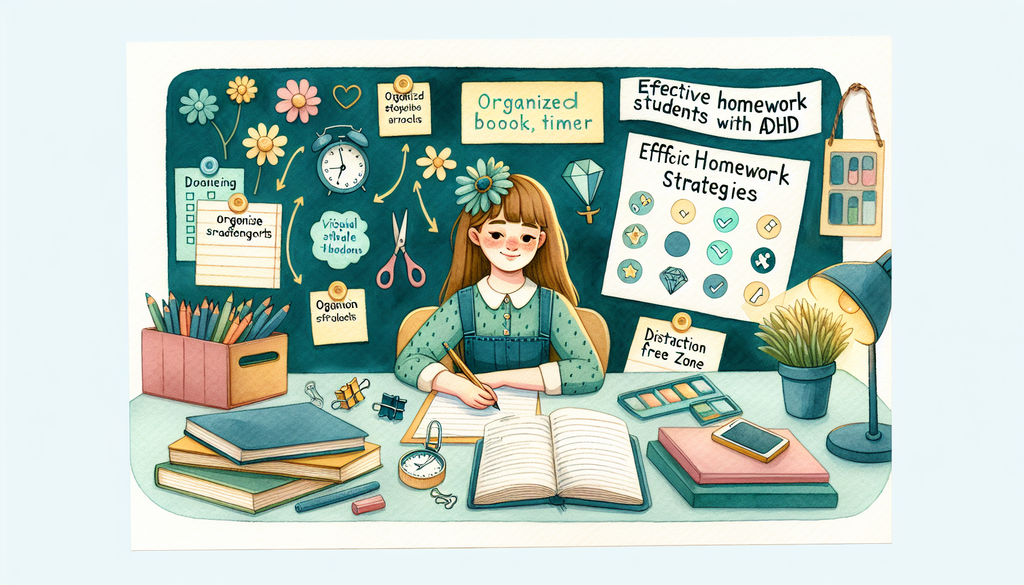Effective Homework Strategies for Students with ADHD

As parents and caregivers, it’s often challenging to watch a child struggle with homework, especially when the child has Attention-Deficit/Hyperactivity Disorder (ADHD). By adopting the right strategies, however, we can transform this stressful task into a learning opportunity that caters to the child’s unique needs. This blog post aims to offer practical tips to facilitate this process, helping your child to overcome homework hurdles and succeed academically.
Understanding ADHD
To understand the specific needs of a student with ADHD in terms of homework completion, we first need to comprehend ADHD’s central challenges. ADHD affects a person’s ability to maintain attention, control impulses, and manage organizational tasks, which defines many of the skills needed to complete homework efficiently (Understanding Twice-Exceptionality: A Parent’s Guide). Combining this knowledge with effective strategies can enhance your child’s homework success.
Creating a Structured Homework Environment
Routine is king when it comes to helping children with ADHD. Implement a consistent homework time and place, free of distractions. Tools such as clocks, timers, and calendars can reinforce this structure (Autism and Family Life: Navigating Daily Routines).
Breaking Down Tasks
ADHD can make large, multi-step activities seem overwhelming. Breaking homework into smaller, more manageable tasks can make it easier for your child to concentrate and complete their work.
Using Visual Aids
Visual aids can act as external reminders of tasks, reducing the dependence on working memory. This approach can be particularly helpful for children with ADHD who struggle with executive functioning (Promoting Executive Functioning in ADHD). Posters, color-coding, and checklists are visual tools that can aid organization and task completion.
Implementing Movement Breaks
Children with ADHD often have a lot of energy and may find it hard to sit for extended periods. Short, timed breaks for physical activities can improve attention and productivity.
Fostering Self-Monitoring Skills
Encourage your child to take ownership of their homework by fostering self-monitoring skills. This can be achieved through goal setting and self-reflection (Starting the Year Strong: Vision Boards for Gifted Students).
Prioritizing Quality over Speed
Some children with ADHD may rush through their homework, leading to errors. Encourage your child to focus on thoroughness instead of speed. This approach ties in with the broader principles of teaching metacognition and self-editing skills to diverse learners (Rethinking Homework: Effective Strategies for Diverse Learners).
While these tips are helpful starting points, remember that each child is unique and may require personalized strategies. Regular communication with teachers and professionals can provide further insights into what works best for your child (Your Child’s Rights: Understanding the IEP Process). Through attuned support and understanding, we can help children with ADHD to not merely survive the demands of homework but thrive amidst them.